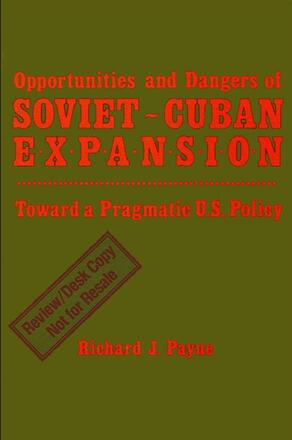
Opportunities and Dangers of Soviet-Cuban Expansion
Towards a Pragmatic U.S. Policy
Alternative formats available from:
Description
Combined with aggressive rhetoric and ideological hostility, the conventional approach to crisis resolution generates only military options and diminishes our prospects for less dangerous solutions. This book explains how a workable, pragmatic, and efficient foreign policy in relation to Soviet-Cuban activities in the Third World can evolve through negotiation, that de-emphasizes ideology. The focus is on problems within less developed countries—problems that provide opportunities for Soviet-Cuban involvement.
The book examines several Third World conflicts in which the Soviet Union and Cuba are involved (The Horn of Africa, Afghanistan, Nicaragua, Southern Africa, and the Commonwealth Caribbean) and suggests a pragmatic policy tailored to each regional conflict. An objective assessment of Soviet-Cuban activities discovers opportunities for cooperation and mutual restraint.
Richard J. Payne is Professor of Political Science at Illinois State University.
Reviews
"I found this book interesting to read and loaded with useful reference material. I think a number of professors would adopt it for courses in American foreign policy, world politics, or national security policy. I would. " — W. Raymond Duncan
"The strongest aspect is that it is extremely well-written. It is not cluttered with jargon and it reads easily. The narrative descriptions of events and developments provide readers with the background necessary to analyze the situations at hand. Undergraduates in U. S. foreign policy would respond positively to the straightforward presentation. " — H. Michael Erisman